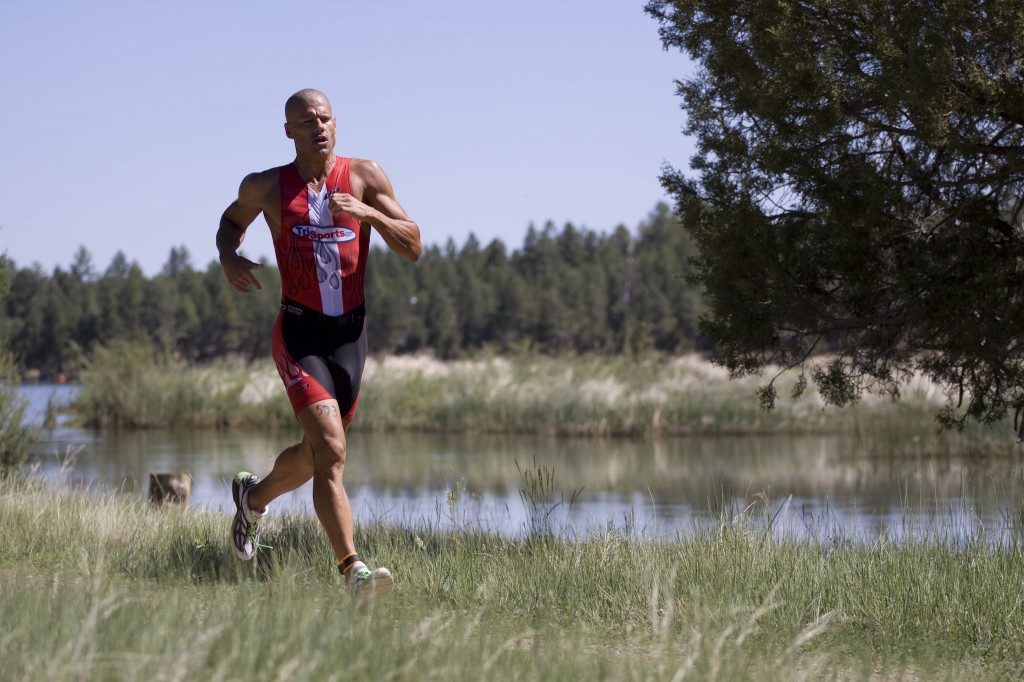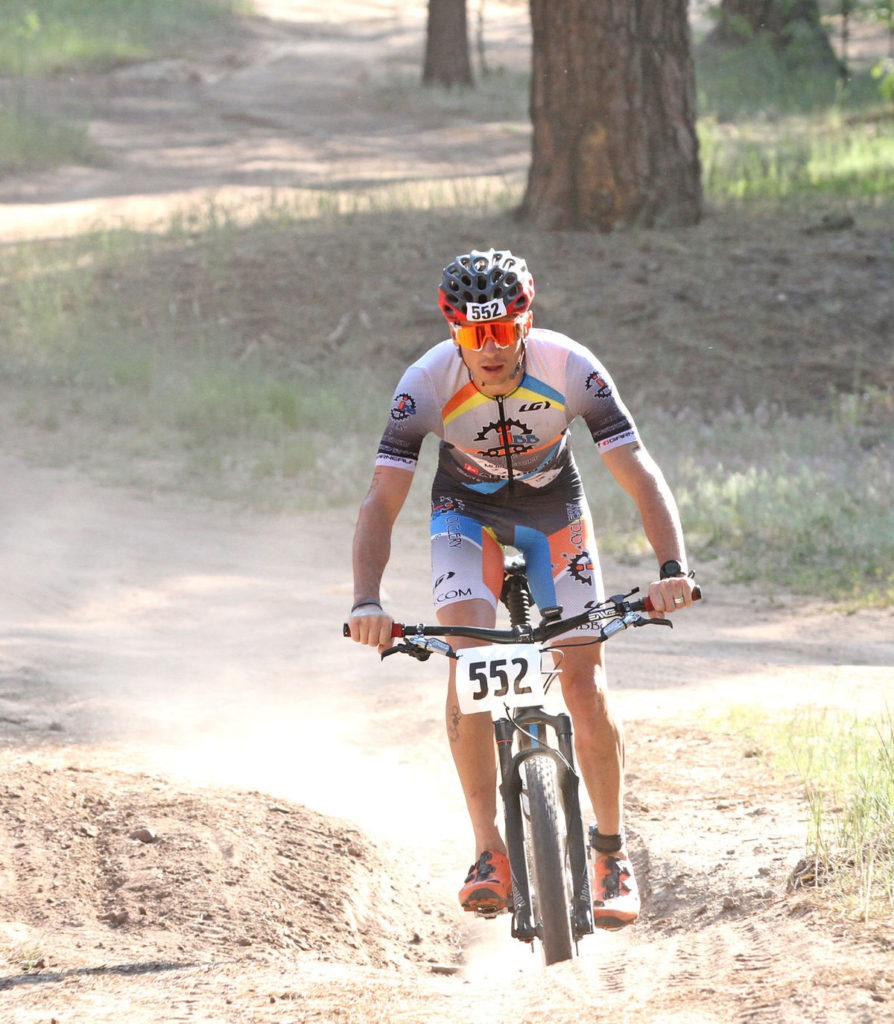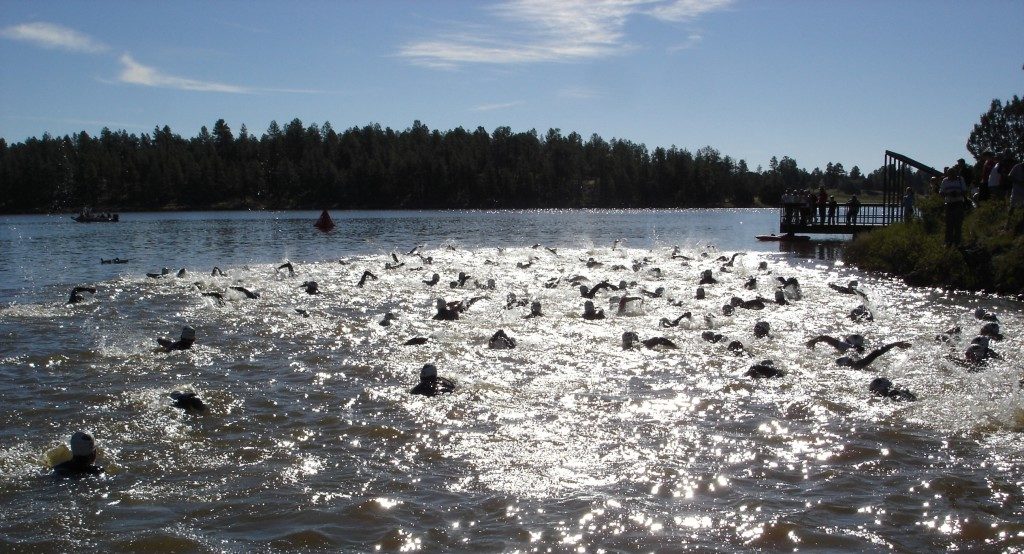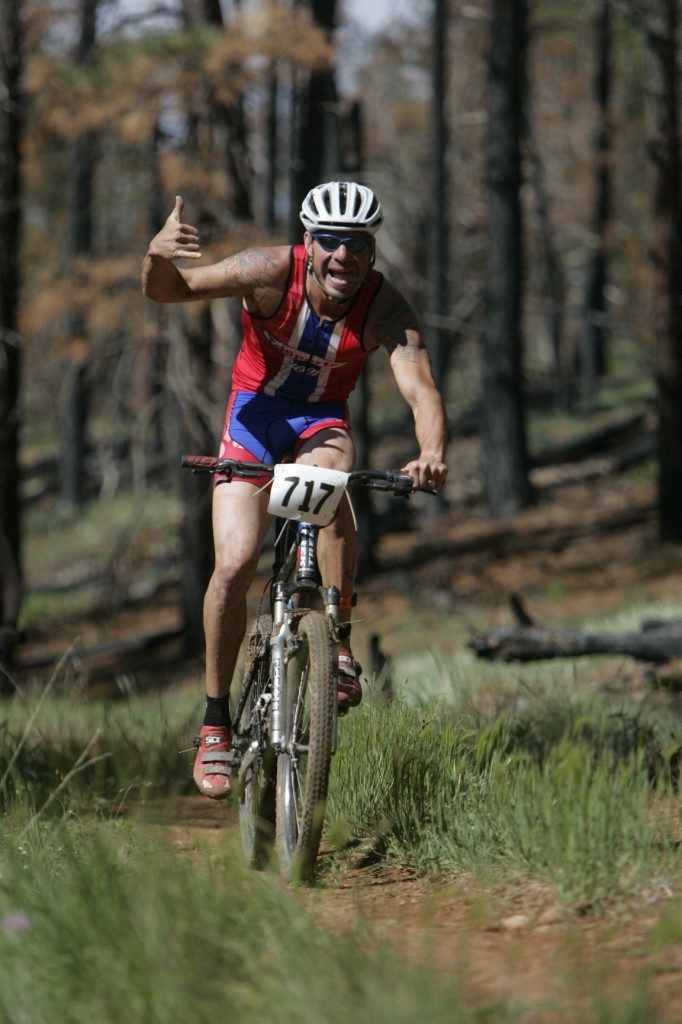Written by Barret Fishner, Pro Team USA World Championship Team
Off-road triathlon is quickly growing all around the world. Here in Europe, a single Xterra can draw over 1,000 competitors. Racing off-road brings a variety of different challenges than its road counterpart. Here are some tips to help you nail your next, or first, off-road triathlon.
Why Go Off-Road?
It’s fun! Super fun! You get to flow some great trail through the woods and be one with nature. Off-road is great for the adventurous spirit. Every course brings its own unique set of challenges. Each venue is unique and different as well, usually set in some small mountain town.
Boredom Buster
Off-road allows you to explore during training. Where does that dirt road go? Or that trail? You may be surprised what you find in your area once you start exploring. Not to mention the lack of cars and traffic during training. Every course is different and unique. No one course or venue is similar to the other…the ultimate boredom buster for those easily bored.
Gear Up
Your gear choice will be vital to your success; the equipment you use will significantly impact your race. First, you will need a mountain bike. Not sure what kind of mountain bike will suit your needs, check out Mountain Biking for Dummies: The Frame to determine which bike would suit your fancy.
Tires. In regions where weather conditions change frequently, it’s a good idea for off-roadies to have a few different tires in their arsenal with different tread patterns in their collection: low profile knobs for dry hardback, mid-range trail for loose rocky roots or slightly wet, and open spaced knobs for mud.
Tire and Fork pressure will determine how the bike rides. Make sure you have enough pressure to not roll the tire off the rim or bottom out against it. Bring a spare tune, CO2, and multi-tool. Off-road courses can be 12mile laps, you want to be able to continue, or at least get home if something happens.
I highly recommend mountain bike shoes and pedals. Many Xterra courses keep it old school with hiking sections in several of their races. Plus, mountain bike pedals clear mud better so you can still clip in if rain or mud are on the forecast.
As far as running shoes, look for a shoe with adequate cushioning, tread, and ankle support. If the trail portion may be muddy or technical, look for a good trail shoe with appropriate tread, especially for those muddy races. Brooks Cascadia 11 Trail Shoe.
Bike Handling Skills
Racing off-road is very bike heavy, and a large part of a fast bike is your technical riding ability. Races can be won solely on who was able to navigate the course the best. Riding a mountain bike is very different than on the road. Yet the skills you learn riding off-road will make you better back on the pavement. Your body position should be low, to get your center of gravity down. Bend your elbows and knees, but stay relaxed. Pretend the grip is slightly bigger than it actually is; no white knuckles. Look ahead where you want to go, and point your hips in that direction. Remember, the bike knows what to do, allow it to do so.
Improve Race Tactics & Fueling
This is another deal breaker for off-road racing. Off-road races are significantly longer, sometimes 3-4 hrs, so your intensity and nutrition will determine how your day goes. If you’re new to off-road racing, it’s always best to play it conservative at the start so you can go harder later. You will have a much better race and faster time than if you blow up and are trying to survive to the finish.
Prepare ahead of time; go online and find all the information you can on the course. Study the elevation profile and terrain. How many climbs are there? What’s the average grade? How long (in minutes) are each? Do this for the bike and run. This will give you an idea where to hammer and where to conserve. Are there any aid stations? This impacts nutrition, as you’ll want to have enough food and water to get through. Most Pros go with just bottles because of weight. Depending on the course, it may elect for a hydration pack.
Core Strength
An easy area to forget is your core strength, as juggling three disciplines is already hard enough. Your core strength greatly impacts your performance off-road. Off-road can beat you up depending on the terrain and elevation. It takes a strong core to endure and carry you to the finish line. The stronger your core is, the better your endurance will be on the course. Don’t worry about making it to a gym, there’s plenty you can do at home. Check out these training articles for ideas: Strength Training for Triathletes and Prehab Exercises to Stay Run Healthy.
Swim in Open Water
You must train in situations you will be racing in. The biggest challenge in open water is often sighting. Off-road swim courses may have an unusual pattern. For example, take last year’s ITU Cross World Championships, it looked like a heart shape loop with a tail. That’s nine buoys to navigate, twice (2x750m laps)! Before your race, get some open water training swims in and you’ll be thankful you did come race day.
Warm Up
A good warm up will really help your event. Your engine needs to be primed to race off-road. Do a gradual intensity build over 15 minutes on the bike with a five minute cool down. Just enough to sweat some and feel warm, loose, and ready. Besides prepping your body, you are prepping you mind.
Practice Your Transitions
Transition is like the 4th sport, and the more smoothly it goes, the better your mindset will be for the bike and run. Practice it frequently. Getting more smooth on your transitions will help settle your nerves, especially for an off-road transition where your hands are dirty or muddy.
Go with the Flow
In off-road racing, ‘stuff’ happens out there. You may slip on the bike or run, get a flat tire, have an unexpected obstacle or conditions, to name a few. It’s all part of the adventure. Everyone has days or sections of a race where things just do not go smoothly. The best thing to do is deal with it and move on. Get back to a clear, relaxed state and go with the flow. Remember, this is fun!
With these tips, you will be able to nail your next off-road triathlon. Good luck, now go Grip-N-Rip!

 About the Author: Barret was born and raised in the coastal mountains of Oregon, where he discovered mountain biking and racing in his teens. He loves the outdoors and all activities in it, especially off-road. Barret is a RAAM finisher, Pro Team USA World Championship team, competed in the World Championships 3x (cyclocross, duathlon, off-road triathlon), and holds a pro card in off-road triathlon and off-road cycling. Barret and his wife (US Army) are currently stationed in Belgium, where he is utilizing the time to pursue is passion for off-road racing.
About the Author: Barret was born and raised in the coastal mountains of Oregon, where he discovered mountain biking and racing in his teens. He loves the outdoors and all activities in it, especially off-road. Barret is a RAAM finisher, Pro Team USA World Championship team, competed in the World Championships 3x (cyclocross, duathlon, off-road triathlon), and holds a pro card in off-road triathlon and off-road cycling. Barret and his wife (US Army) are currently stationed in Belgium, where he is utilizing the time to pursue is passion for off-road racing.




